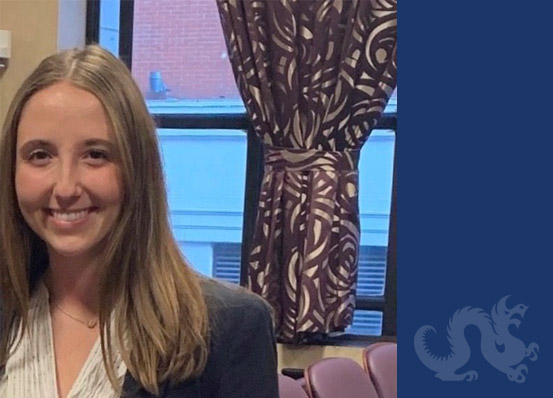At the beginning of December, 2L Theresa Topping and Professor Veronica Finkelstein published a moot court problem in the renowned NYU Law Moot Court Casebook. Topping and Finkelstein began working together over the summer after being connected by Donna Gerson, associate dean for career strategies, who helped students who lost summer placements due to COVID-19 restrictions find new positions.
“I’m so grateful for my experience this past summer and I could not be happier with our final product!” said Topping. “Things were up in the air in May for me, and I don’t think the change in plans could have gone any better.”
Topping began her work on the problem by looking for circuit splits or other unsettled legal issues, which led her to discover a standing issue under the Telephone Consumer Protection Act (TCPA), a federal consumer protection statute passed by Congress in 1991 and signed into law by President George H.W. Bush. In the few cases involving the TCPA that the United States Supreme Court has heard, the Court has not addressed what is sufficient to confer standing for a TCPA.
“I did not know anything about this circuit split until Theresa found it,” said Finkelstein, “but it made a perfect procedural issue for our problem.”
 Theresa Topping
Theresa Topping
The collaboration between Topping and Finkelstein resulted in a complex problem, Keystone Quick Care, Inc. v. Hailey Hatterfield, which addresses unsettled areas of torts and civil procedure in the context of a global pandemic. The facts of the case revolve around the petitioner, Hailey Hatterfield, who as an elementary school teacher was required to follow a strict testing and quarantine policy in advance of the school year. Her failure to follow this policy was discovered when a medical clinic sent Hatterfield an unsolicited text message with blood test results, and the text message was seen by another teacher. Hatterfield lost her job and sued the clinic alleging a statutory claim under the Telephone Consumer Protection Act and a state law tort claim for invasion of privacy.
Creating the problem was an enjoyable experience for Topping, who said she learned that “drafting a moot court problem is like putting together a big puzzle and I’m so glad to have worked with Professor Finkelstein in putting that puzzle together!”
Finkelstein also enjoyed collaborating with Topping. “Although this was not the summer experience she originally planned,” said Finkelstein, “she immediately jumped with both feet into researching and writing. Her boundless enthusiasm for the work made the summer pass quickly, and before I knew it we had a finished work product that was being published by a law journal at one of the premier law schools in the nation. To this day, we have never met in person. Yet despite the challenges of the pandemic, we worked as a unified team all summer long and produced a work product Theresa should be very proud of.”
Topping and Finkelstein’s problem was published December 1, 2020 and can now be used by any law school for appellate advocacy classes or any internal or extracurricular moot court competition. The NYU Law Moot Court Casebook, a peer reviewed academic journal, is published annually and is the most widely recognized and utilized set of moot court problems in the nation. Problems from the Casebook are used at law schools and interscholastic moot court competitions across the country.